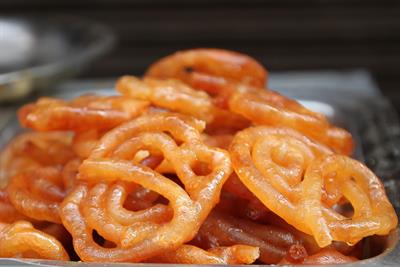
PUMPA - SMART LEARNING
எங்கள் ஆசிரியர்களுடன் 1-ஆன்-1 ஆலோசனை நேரத்தைப் பெறுங்கள். டாப்பர் ஆவதற்கு நாங்கள் பயிற்சி அளிப்போம்
Book Free Demo After taking a few steps, I loosened my grip. Immediately, the oldest coin said, “Here we are trying to tell you something for your own good and you try to strangle us instead. Tell me honestly now, don’t you feel like eating those hot, hot jalebis? And then, if you do end up spending us for today, won’t you get the scholarship money tomorrow? Sweets with the fees money, fees with the scholarship money. End of story! Kissa khatam, paisa hazam.”
What you’re saying isn’t right, I replied, but it isn’t that wrong either. Listen. Stop blabbering and let me think. I am not a common sort of boy. But then, these jalebis are no common sort of jalebis either. They’re crisp, fresh and full of sweet syrup.
Explanation:
Then the boy, after taking few steps forward, released his hold from the coins. Suddenly, amongst all the four coins, the oldest coin said they were trying to convey something for his goodness but instead of obeying that, the boy had suppressed them tightly.
Later the oldest coin asked him to speak to him honestly about whether he liked to eat those hot crispy jalebis. Furthermore, it asked him to spend the coins for today on jalebis and pay the school fees tomorrow using his scholarship money. Then the oldest coin exclaimed that it was "end of story!” It is a phrase used to 'emphasise that there is nothing to add on a matter just mentioned'. Here, we can see that the oldest coin was trying to end the conversation by stating that the suggestion utilising the money was correct and that there was nothing more to say about it. Also, the phrase "Kissa khatam" means story ends, and "paisa hazam" means money disappears or money digested by consuming jalebis.
While reading the story, there remained a question of how the coins know that the boy would get the scholarship money the next day. The answer to this question might be the boy's inner sense was portrayed here as in the name of "coins". The statement was made because his subconscious mind knew that he would get the scholarship money, and with that, he could manage to pay the school fees.
While coming back to the story after hearing the oldest coin's talk, the boy stated that what the coin was trying to tell was neither correct nor wrong. Then he asked the oldest coin to stop talking and give him some time to think about it. After thinking for a while, the boy said that he was not an ordinary boy. It implies that he was not a common sort of boy who could spend the money unnecessarily. Then the boy claimed that the jalebis coming out from the large pot were not ordinary jalebis. He further explained that the jalebis seemed to be crisp, fresh and full of filled in sweet syrup. From this paragraph, one can understand that the boy desired to purchase the jalebis. But he was battling with his inner self as he thought about the problems and fears he faced. On the other hand, he was still confused about what he should do.
While coming back to the story after hearing the oldest coin's talk, the boy stated that what the coin was trying to tell was neither correct nor wrong. Then he asked the oldest coin to stop talking and give him some time to think about it. After thinking for a while, the boy said that he was not an ordinary boy. It implies that he was not a common sort of boy who could spend the money unnecessarily. Then the boy claimed that the jalebis coming out from the large pot were not ordinary jalebis. He further explained that the jalebis seemed to be crisp, fresh and full of filled in sweet syrup. From this paragraph, one can understand that the boy desired to purchase the jalebis. But he was battling with his inner self as he thought about the problems and fears he faced. On the other hand, he was still confused about what he should do.

Fresh crispy jalebis
Meanings of the difficult words:
| S.No | Words | Meanings |
1 | Grip | Take and keep a firm hold of; grasp tightly |
2 | Scholarship | A grant or payment made to support the student's education based on their academic or other achievements |
3 | Blabbering | Talk foolishly, mindlessly, or excessively |
Reference:
National Council of Educational Research and Training (2008). It so happened. Jalebis- Ahmed Nadeem Qasmi (pp. 62-72). Published at the Publication Division by the Secretary, National Council of Educational Research and Training, Sri Aurobindo Marg, New Delhi.